Subway has been defending its tuna for years, but the latest report still failed to put claims to rest. Take a look at the years-long issue plaguing the chain.
Mary Meisenzahl

Subway tuna sandwich.Photo Illustration by Justin Sullivan/Getty Image
- The NYT published a report stating that it found no tuna DNA in Subway tuna sandwiches.
- Subway called the method unreliable and maintains that it serves 100% tuna.
- Subway has publicly defended its tuna sourcing for years.
The first Subway opened in 1965 as Pete's Sandwich Shop. It didn't officially become Subway until 1968.

Subway
Source: Subway
Tuna wasn't on the first menu, but it's been around for decades. "Our popular tuna sandwich, made from 100% wild caught tuna mixed with mayo, has been a staple of our menu for years," the chain told Insider.

James Marshall/Getty Images
In 2011, Subway surpassed McDonald's as the world's largest restaurant chain.
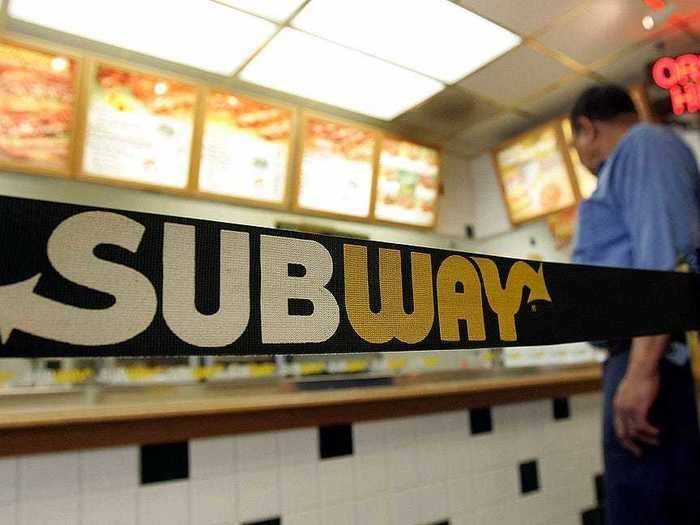
Getty Images
Source: WSJ
Nonprofit group Oceana conducted a two-year study on fish sales and mislabeling, and found that 59% of US tuna was mislabeled and contained other fish. The findings were released in 2013 and picked up in the media.
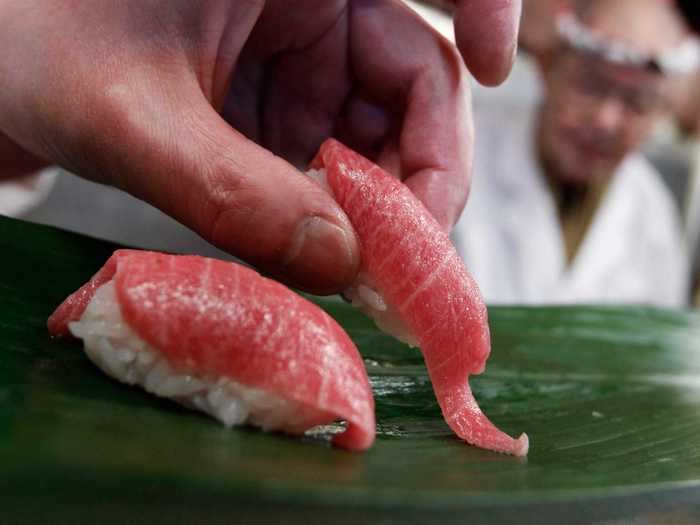
A sushi chef serves sushi of high-quality fatty Atlantic bluefin tuna or "o-toro sushi nigiri" at a sushi restaurant in Tokyo.
Reuters/Issei Kato
Source: Oce ana
In 2016, Subway joined International Pole & Line Foundation (IPNLF), a nonprofit dedicated to developing sustainable fisheries and supply chains.
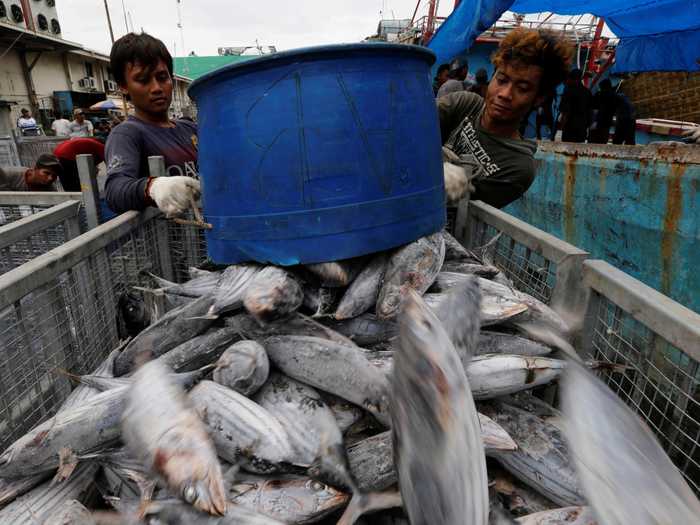
Workers load frozen tuna into a basket before selling the tuna at Muara Baru fish market in Jakarta, Indonesia
Beawiharta/Reuters
Source: QSR
At the time, Subway said that it "only serves its customers with skipjack tuna, sourced from fisheries with non-threatened stock levels."
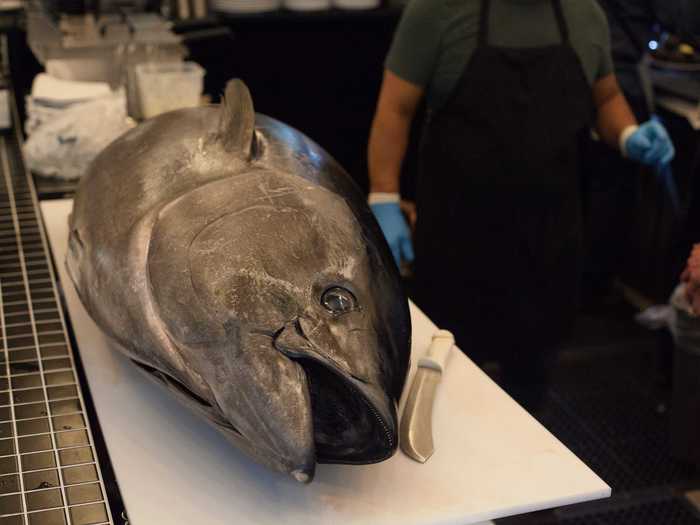
Tuna at fish market.
Photo by Amy Brothers/MediaNews Group/The Denver Post via Getty Images
In 2019, Subway emphasized tuna with a new tuna collection, including a tuna melt and BLT through a partnership with Tastemade.
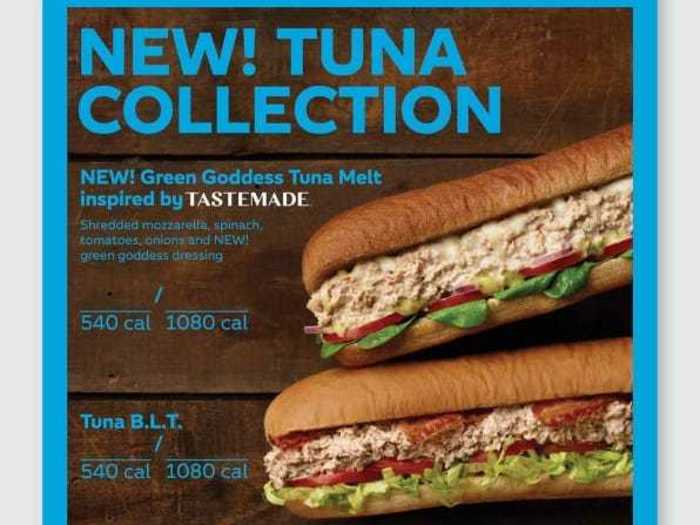
Subway introduced two new tuna sandwiches in 2019.
Subway
Source: Fast Company
In January 2021, a California lawsuit alleged that Subway profited by mislabeling a tuna product that contained no actual tuna.
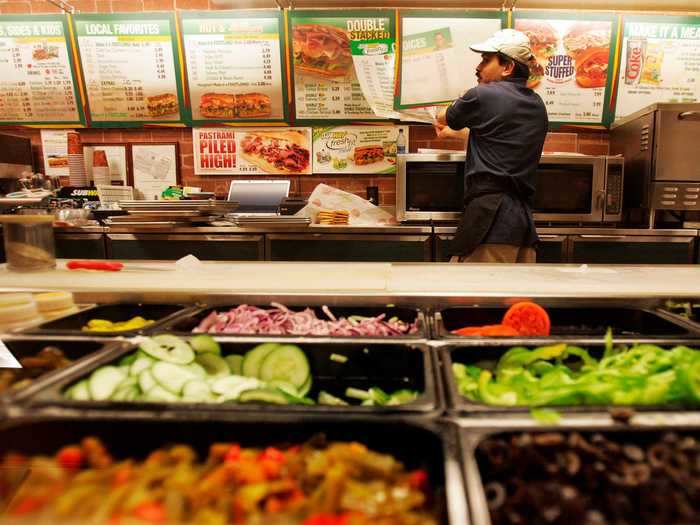
Dima Gavrysh/ AP
Source: Insider
"The products are made from a mixture of various concoctions that do not constitute tuna, yet have been blended together by Defendants to imitate the appearance of tuna," the suit said.
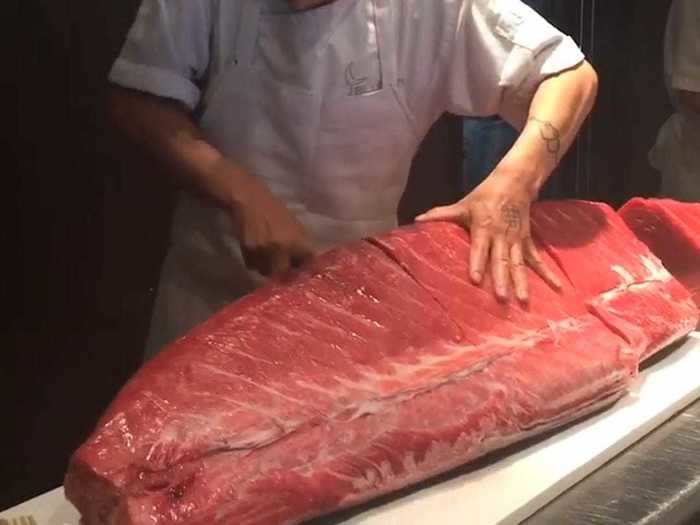
INSIDER
Source: Insider
"Tuna is one of our most popular sandwiches. Our restaurants receive 100% wild-caught tuna, mix it with mayonnaise and serve on a freshly made sandwich to our guests," Subway said, calling the claims "meritless."
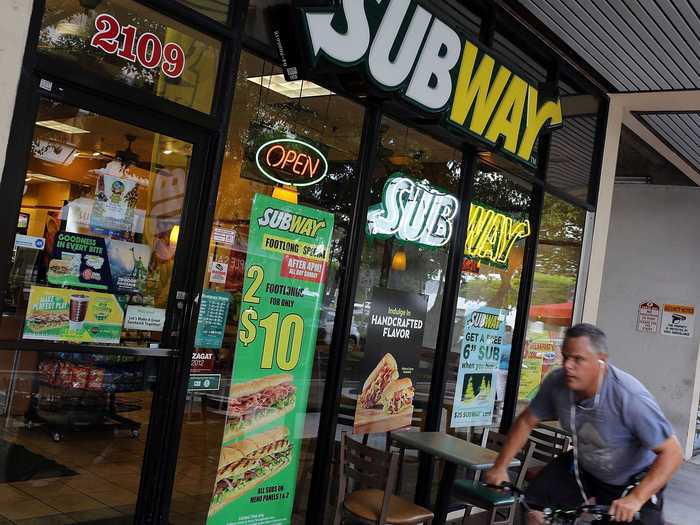
Joe Raedle/Getty Images
Source: Insider
In February, Inside Edition had samples from tuna sandwiches in Queens tested, and found that they were in fact tuna.
The mislabeling allegations didn't stop Subway's embrace of tuna. The chain introduced a new tuna melt with onions and provolone in May of this year.
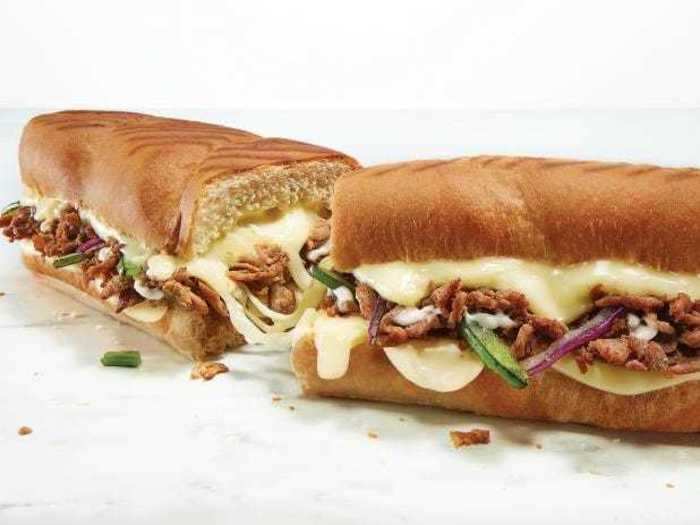
Subway introduced new melts.
Subway
Source: QSR
In June, the plaintiffs from the suit amended their claims. They are no longer questioning whether Subway serves tuna, but whether it is actually “100% sustainably caught skipjack and yellowfin tuna.”
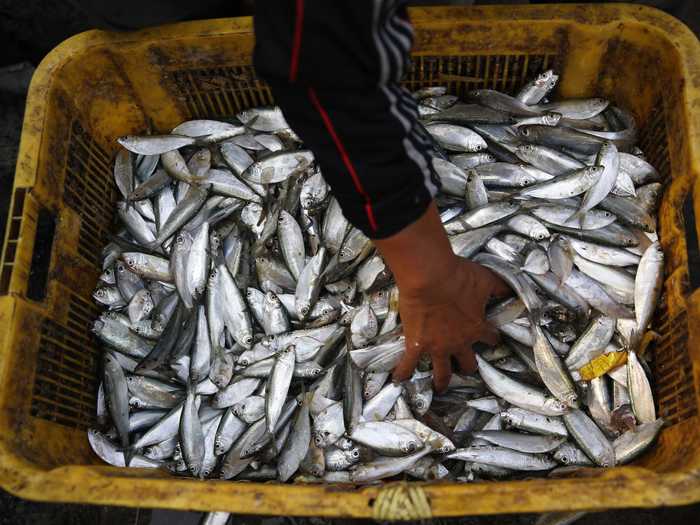
A woman sorts through fresh fish on the dock after it was unloaded from a boat in Muara Angke port in north Jakarta.
REUTERS/Darren Whiteside
Source: NYT
Then in June, the New York Times published its own report after sending out multiple tuna sandwiches for lab testing.
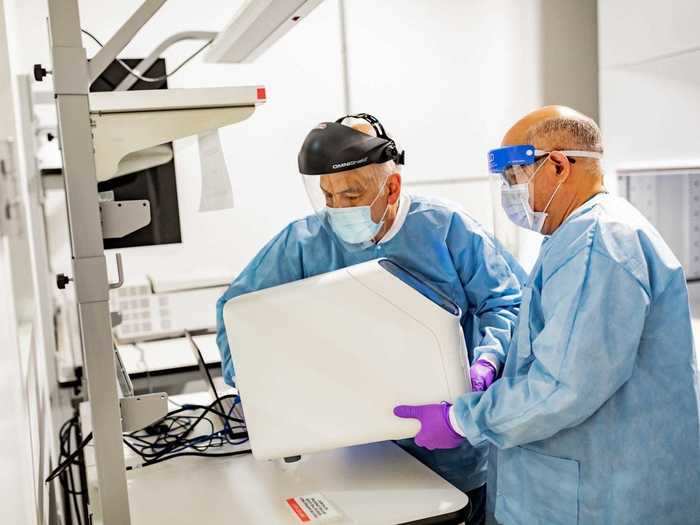
Amazon is building its own COVID-19 testing lab.
Amazon
Source: Insider
"No amplifiable tuna DNA was present in the sample and so we obtained no amplification products from the DNA," the lab told The Times. "Therefore, we cannot identify the species."
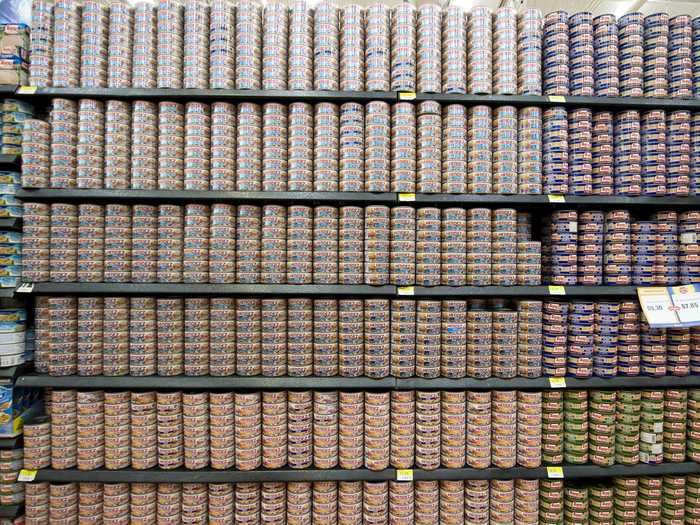
Ronaldo Schemidt/AFP/Getty Images
Source: NYT
A spokesperson from the lab offered possible explanations: "One, it's so heavily processed that whatever we could pull out, we couldn't make an identification," the person said. "Or we got some and there's just nothing there that's tuna."
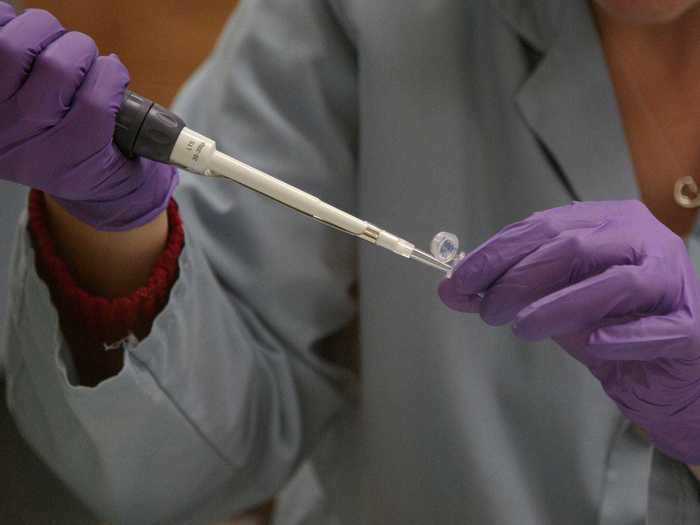
Senior Criminalist Michelle Halsing works on mitochondrial DNA testing at the State of California Department of Justice Jan Bashinski DNA Laboratory
AP/Jeff Chiu
Source: NYT
Tuna experts also say that the cooking process could break down the tuna protein, making it difficult to identify in a lab.
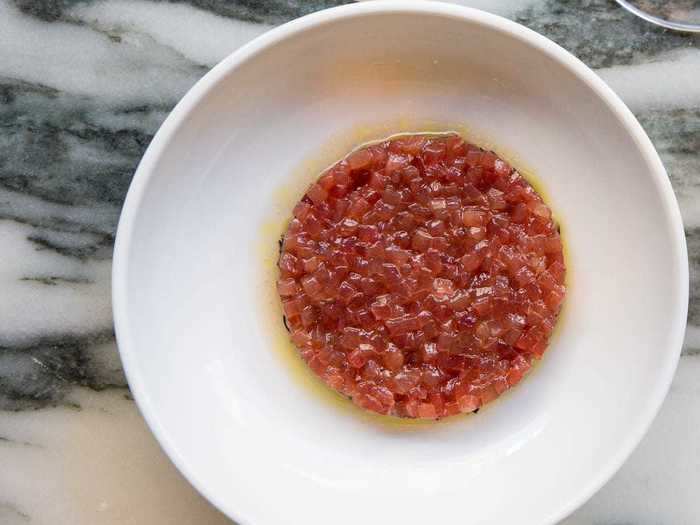
Tuna tartare at Flora Bar
Sarah Jacobs/Business Insider
Subway shot back with a statement calling the DNA testing carried out by The Times "an unreliable methodology for identifying processed tuna ... DNA testing is simply not a reliable way to identify denatured proteins, like Subway's tuna, which was cooked before it was tested."
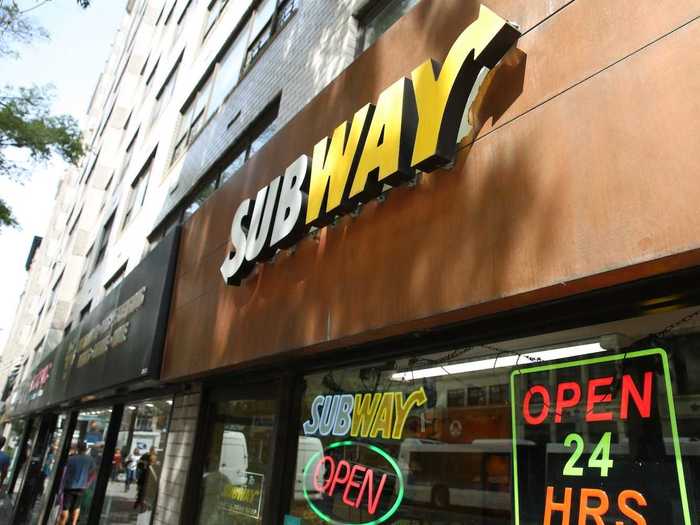
Sarah Schmalbruch / INSIDER
Source:Insider
Subway says tuna remains one of its most popular sandwich fillings.
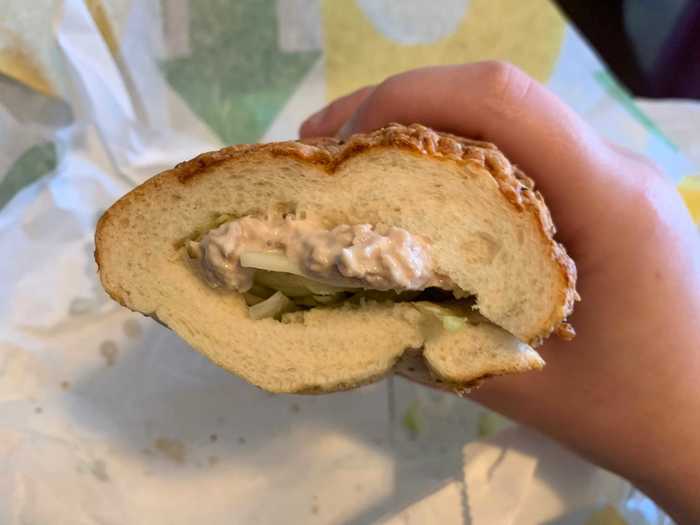
Subway's tuna is under fire.
Mary Meisenzahl/Insider
Do you have a story to share about a retail or restaurant chain? Email this reporter at mmeisenzahl@businessinsider.com.
READ MORE ARTICLES ON
Popular Right Now
Popular Keywords
Advertisement